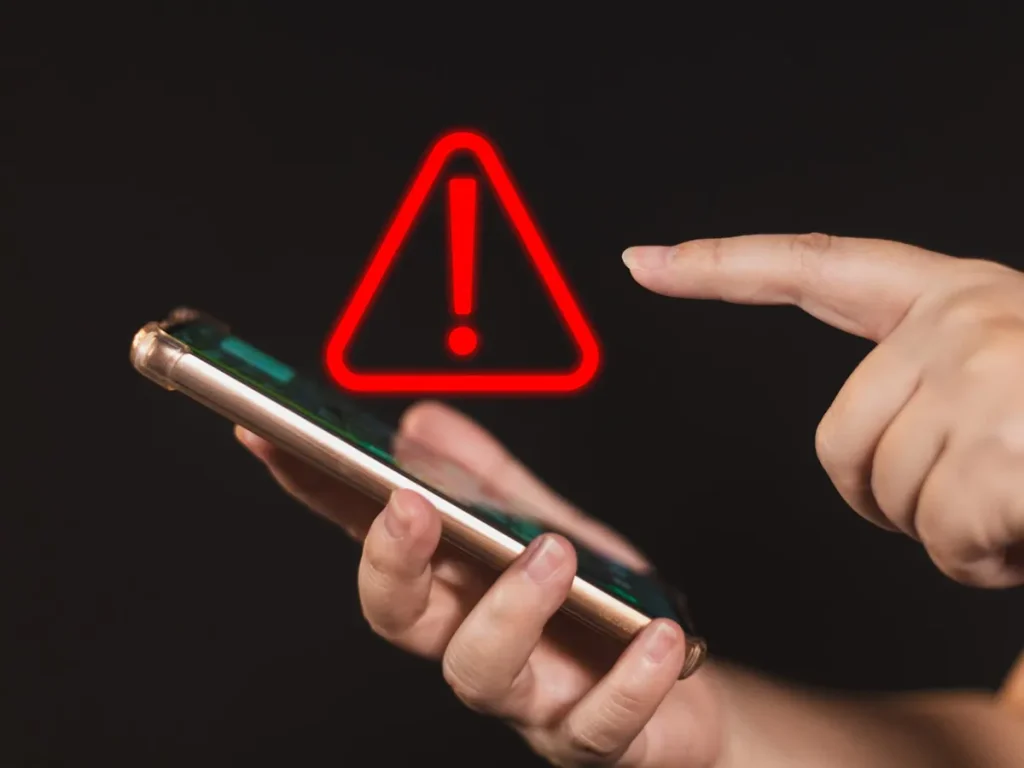What is a PDP error?
If you see a “PDP error” warning on your phone, it means there’s a problem with the Packet Data Protocol, which is what smartphones use to connect to the internet via mobile data. A PDP error means your device can’t establish a data connection, even if your data plan is active.
In simple terms, your phone can’t communicate with your mobile operator’s data network.
This issue can happen with any type of SIM, whether a traditional physical SIM or a modern eSIM, and it might show up unexpectedly.
Luckily, it’s a common issue and usually easy to fix.
How to identify a PDP error
You might see one of the following messages:
- “PDP authentication error”
- “Unable to connect to the data network”
- “Could not activate cellular data network”
- “Mobile network error”
If no message appears, here are some typical signs:
- You can’t browse the internet using mobile data
- Apps that need an internet connection won’t work
- You can’t send or receive MMS messages
Common causes of a PDP error
- Incorrect APN settings
The APN (Access Point Name) tells your phone how to connect to the internet through your mobile carrier. If the settings are incorrect, your phone won’t be able to connect. - Damaged SIM or eSIM
A physical SIM card could be damaged, especially if it’s been removed from the slot. In this case, you may need to request a replacement from your carrier.
The same can happen with an eSIM if the installation wasn’t completed correctly. Try removing and reinstalling the eSIM, or contact your provider for remote support. - Network issues from your provider
Sometimes the problem isn’t on your end, it could be a temporary issue with your provider’s network. Check their website for updates or call their customer support line. - Out of credit or no data left
Even if technically not a PDP error, your phone might show it if your balance is zero or you’ve used up all your data.
How to fix a PDP error
- Restart your phone
The classic fix – turn your phone off and on again. If the issue is caused by a temporary software conflict, a reboot might do the trick. - Remove and reinsert your SIM (or disable and re-enable your eSIM)
This helps your phone detect the SIM again, and also gives you a chance to check for any physical damage or installation issues. - Check your APN settings
As mentioned earlier, incorrect APN settings can block your internet access. To check them:
– Go to Settings > Mobile network > Access Point Names (APN)
– Enter the correct values provided by your mobile operator
If you’re using an eSIM from eSIM.sm, the APN is configured automatically. If you’re still having issues, contact our support team. - Update your phone’s software
Sometimes connection issues are caused by bugs in the operating system. Installing the latest updates may solve the problem. - Reset network settings
Use this as a last resort before panicking 😁
– On Android: go to Settings > System > Reset options > Reset Wi-Fi, mobile & Bluetooth (Depending on your Android version, this might be under Connections or Wi-Fi settings)
– On iPhone: go to Settings > General > Reset > Reset network settings
⚠️ Note: this will delete all saved Wi-Fi networks and Bluetooth connections. - Contact customer support
If you’ve tried everything and the PDP error is still showing, contact your mobile operator…or, if you’re using one of our eSIMs, reach out to eSIM.sm support for help.
eSIM.sm: the best way to avoid PDP errors while traveling
If you want a hassle-free internet connection while abroad, eSIMs from www.esim.sm are the perfect choice. Here’s why:
- Our eSIMs are pre-configured with automatic APN settings, reducing the risk of PDP errors
- We offer coverage in over 190 countries with local data plans and global eSIMs in 150+ destinations
- Flexible data packages, from 1GB up to 100GB
- 24/7 multilingual customer support to help you with anything you need
You can buy your eSIM online and install it in seconds with a QR code. Once you land, just activate it and you’re good to go!
Conclusion
PDP errors might seem scary at first, but they’re usually easy to fix. Restart your phone, check your settings and APN configuration, and don’t forget to keep your software up to date. And if you’re traveling, using a pre-configured eSIM like those from eSIM.sm can help you avoid the issue altogether!




